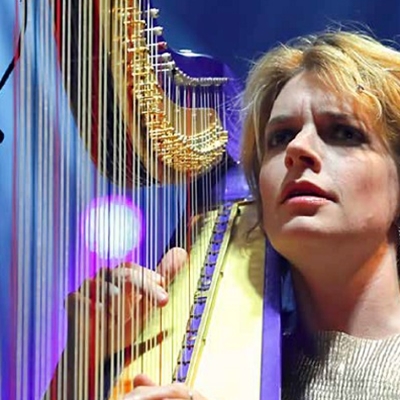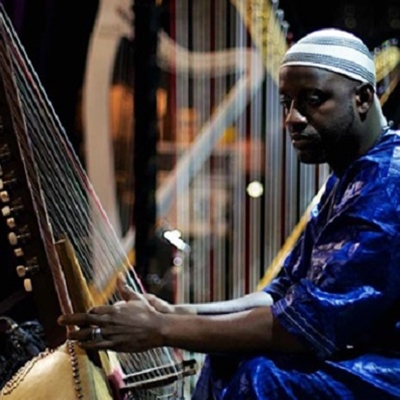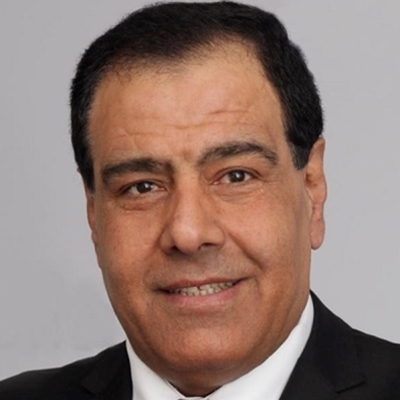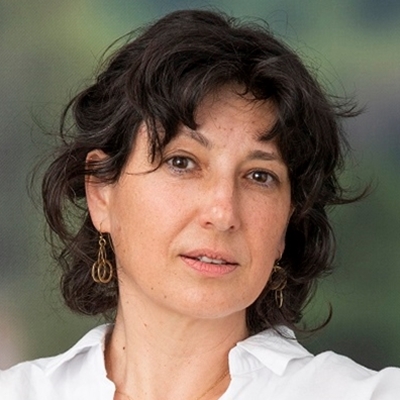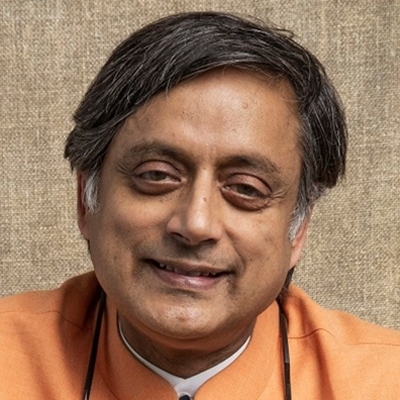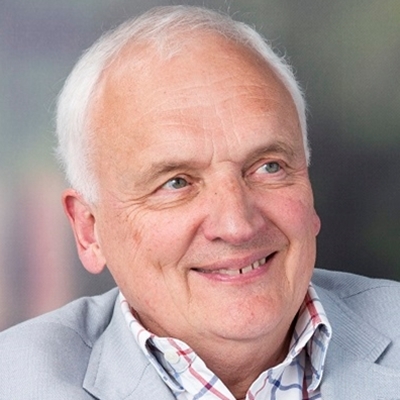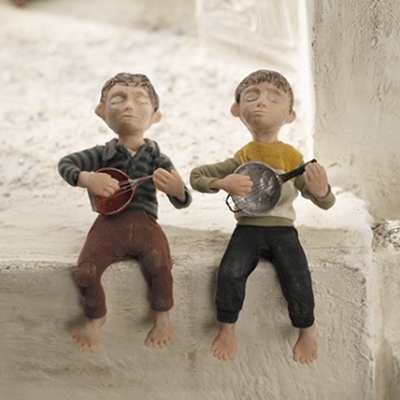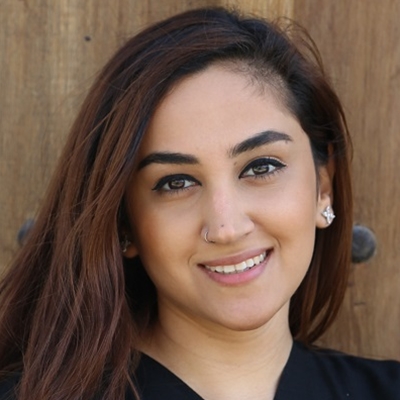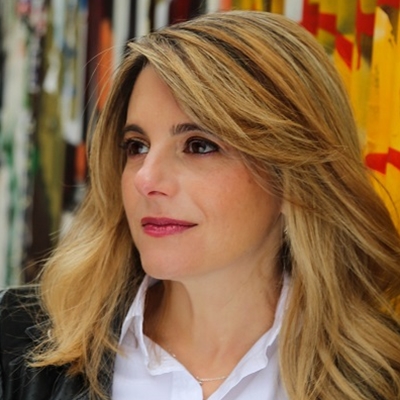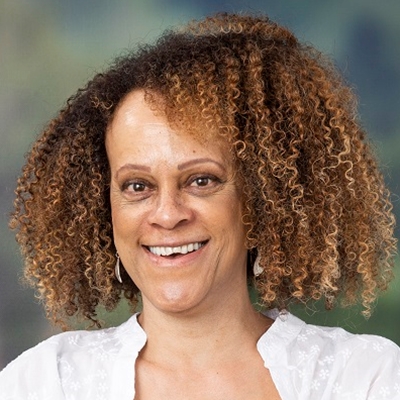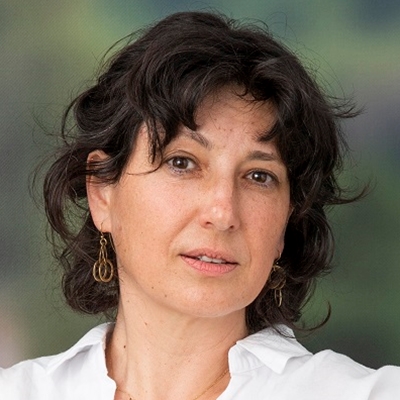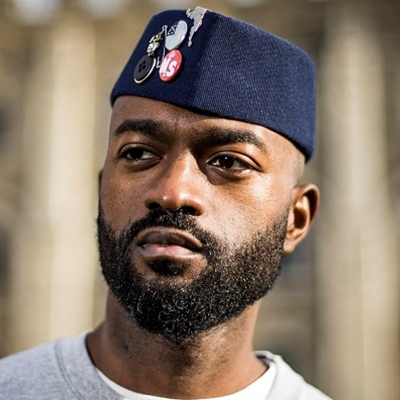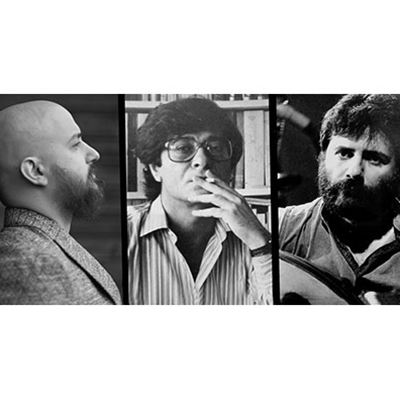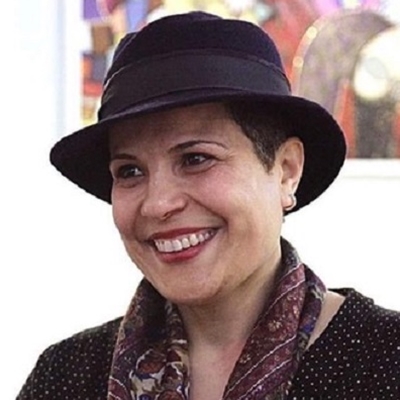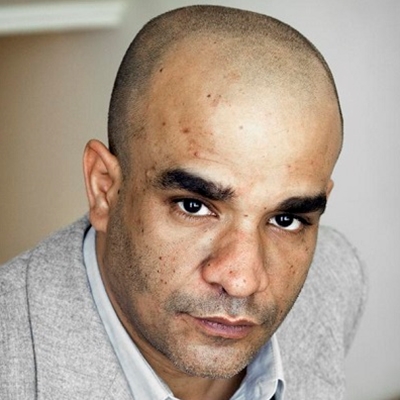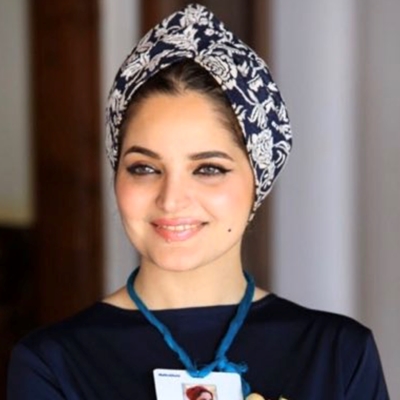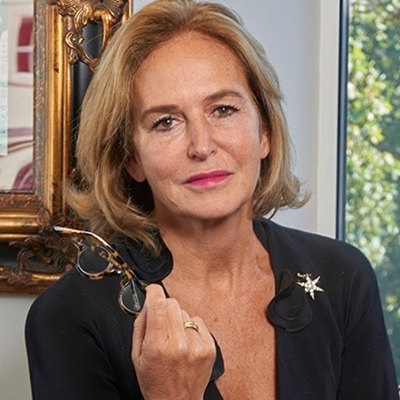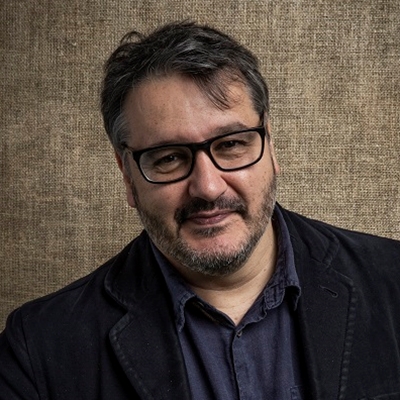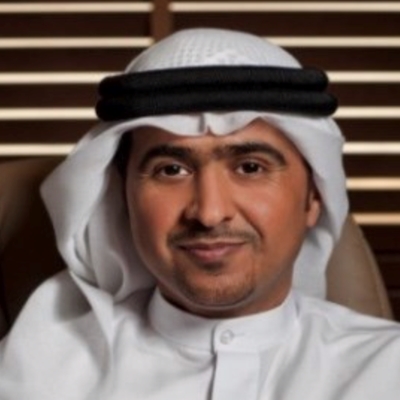Hay Festival Abu Dhabi 2020 Programme
Event 24
This mesmerising duo has been hailed as the “most popular world music act of the decade”. Together Welsh harpist Catrin Finch (Official Harpist to the Prince of Wales from 2000 to 2004) and Senegalese kora player Seckou Keita create a musical marriage of culture that is breathtaking. Their multi-award-winning sound is a joyous, ethereal and hypnotic homage to their countries' diverse cultures. The result is something so extraordinary it can only be described as magic. Their collaborative album Soar won ‘Best Fusion’ Album in the Songlines Music Awards 2019.
Event 25
Lydia Wilson, Izzeldin Abuelaish, Kapka Kassabova, Shashi Tharoor and Nik Gowing
Writers’ Table 2
– Venue: Tolerance Majlis
From the intimate truths of fiction and poetry to the geopolitics of a volatile global reality, this is the second of a series of panel conversations in English and Arabic where writers respond to the audience's questions about the big issues of the day and reimagine the world. Chaired by international strategist and consultant Nik Gowing of Thinking the Unthinkable.
Event 26
Marcus du Sautoy
Finding Moonshine: A Mathematician's Journey Through Symmetry
– Venue: Tolerance Majlis
Symmetry is all around us. Of great importance for our interpretation of the world, this unique phenomenon indicates a dynamic relationship between objects. In chemistry and physics, the concept of symmetry explains the structures of crystals and the theory of fundamental particles; in evolutionary biology, the natural world uses symmetry in the struggle for survival; symmetry (and the rupture of it) is central in art, architecture and music. This talk offers a very special view of the concept, seen from the point of view of a mathematician. Marcus du Sautoy is Professor of Mathematics at Oxford University and author of The Music of the Primes, The Number Mysteries, and What We Cannot Know.

Event 27
The third and final session in our series of film and documentary screenings selected for Hay Festival Abu Dhabi by Sheyma Buali, Director of BBC Arabic Festival - the BBC News Arabic initiative platforming talented filmmakers and journalists whose work focuses on current issues in the region.
Though obviously devastating, the effects of war on humanity is never easy to quantify. In this Children After War session we see how war has affected young people. Loss of limbs for some, dreams of ulterior worlds for others, but always with endurance, stability and hope. These short fiction films are presented through animation, performance and the involvement of those who lived the events they recount.
Children of God, directed by Ahmed AlDaradji – 10’ (Iraq)
War Canister, directed by Yahya AlAlak – 10’ (Iraq)
Transit Game, directed by Anna Fahr – 18’ (Lebanon)
Baghdad Messi, directed by Sahim Omar Khalifa – 12’ (Iraq)
Ayny, directed Ahmed Saleh – 11’ (Palestine)
Free but ticketed
In partnership with BBC News Arabic
Event 28
In 1570, when it became clear she would never be gathered into the Catholic fold, Elizabeth I was excommunicated by the Pope. On the principle that 'my enemy’s enemy is my friend', this marked the beginning of an extraordinary English alignment with the Muslim powers fighting Catholic Spain in the Mediterranean, and of cultural, economic and political exchanges with the Arab world of a depth not again experienced until the modern age. The awareness of Islam that these trades and negotiations brought home found its way into many of the great cultural productions of the day, including most famously Marlowe’s Tamburlaine, and Shakespeare’s Titus Andronicus, Othello and The Merchant of Venice. Brotton shows that England’s relations with the Muslim world were far more extensive, and often more amicable, than we have appreciated, and that their influence was felt across the political, commercial and domestic landscape of Elizabethan England. Brotton is author of The Sultan and the Queen, The Renaissance Bazaar and The Sale of the Late King’s Goods.

Event 29
The Future of Literature in the UAE
– Venue: The Theatre
A panel discussion on the future of the book industry in the UAE and beyond. Participants include Asma Siddiq al Mutawaa, founder of Al Multaqa; Ahlam Bolooki, Director of Emirates Airline Festival; Ahmed Al Ali, Editor at Rewayat, the fiction imprint of Kalimat Group; Saeed Al Tunaji, Publishing Director of the Department of Culture and Tourism's Kalima. Chaired by Salha Obaid Hassan.
Event 31
Islamic book culture dates back to late antiquity, when Muslim scholars began to write down their doctrines on parchment, papyrus, and paper and then to compose increasingly elaborate analyses of, and commentaries on, these ideas. Movable type was adopted in the Middle East only in the early 19th century, and it wasn’t until the second half of the century that the first works of classical Islamic religious scholarship were printed there. But from that moment on, University of Chicago academic Ahmed El Shamsy reveals, the technology of print transformed Islamic scholarship and Arabic literature.
In the first wide-ranging account of the effects of print and the publishing industry on Islamic scholarship, El Shamsy tells the fascinating story of how a small group of editors and intellectuals brought forgotten works of Islamic literature into print and defined what became the classical canon of Islamic thought.
Chaired by scholar and broadcaster Lydia Wilson.

Event 33
In Celestial Bodies, the 2019 International Man Booker Prize winner, Jokha Alharthi brings to life the intertwined tales of three sisters and the secrets and conflicts – both internal and external – of their small Omani society. Alharthi weaves past and present into a narrative that reveals broad strokes of history alongside the personal interplay of characters striving to tell their own stories.
Bettany Hughes, Chair of the International Booker jury, describes it as: “A book to win over the head and the heart in equal measure, worth lingering over. Interweaving voices and timelines are beautifully served by the pacing of the novel. Its delicate artistry draws us into a richly imagined community – opening out to tackle profound questions of time and mortality and disturbing aspects of our shared history. The style is a metaphor for the subject, subtly resisting clichés of race, slavery and gender.”
Chaired by Parween Habib.

Event 34
Christophe Galfard
The Universe in Your Hand: A Journey through Space, Time and Beyond
– Venue: Tolerance Majlis
Christophe Galfard, the Cambridge physicist who trained with Stephen Hawking takes us on a wonder-filled journey to the surface of our dying sun, shrinks us to the size of an atom and puts us in the deathly grip of distant black holes. Along the way you might come to understand – really understand – the mind-bending science that underpins modern life, from quantum mechanics to Einstein's theory of general relativity.
Through brilliant storytelling and humour rather than graphs and equations, the internationally renowned astrophysicist has written an instant classic that brings the astonishing beauty of the universe to life – and takes us deep into questions about the beginning of time and the future of humanity.
Chaired by Marcus du Sautoy.
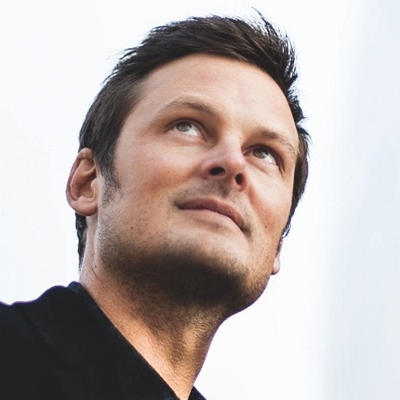
Event 35
Kapka Kassabova talks to Miguel Syjuco
– Venue: The Theatre
The Bulgarian writer discusses her universally acclaimed and multi-award-winning Border: A Journey to the Edge of Europe and her new book To The Lake: A Balkan Journey of War and Peace. The vast lakes Ohrid and Prespa are joined by underground rivers. Two lakes that seem to hold both the turbulent memories of the region's past, and the secret of its enduring allure. Two lakes that have played a central role in Kassabova's maternal family.
Syjuco is a Filipino novelist and professor at New York University Abu Dhabi.
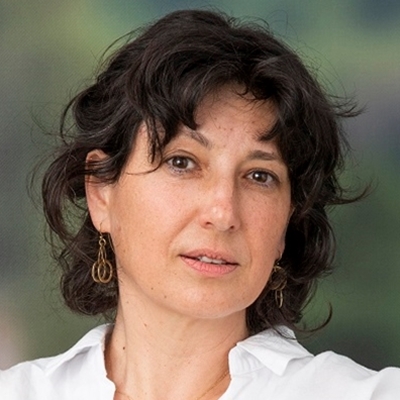
Event 36
The world is in a state of disorder. As we approach the end of the second decade of the twenty-first century, all about us is chaos. The rise of the East is viewed with scepticism and fear by the West. The international liberal order is facing a moment of crisis. Globalisation is confronted by economic nationalism. Strong leaders are exploiting the grievances of citizens (whether imagined or real) to discard global ideals and champion local interests. And the prospects of a ‘global village’, of the world coming ever closer together, seem to be in reversal. A zero-sum approach to development and the securitisation of growth are creating new potential for conflict at a time when the institutions of global governance are weaker than ever before. And we seem just tweets away from Armageddon. Writer and politician Shashi Tharoor has served as both Under-Secretary General at the UN and Minister of State for External Affairs for the Indian Government.
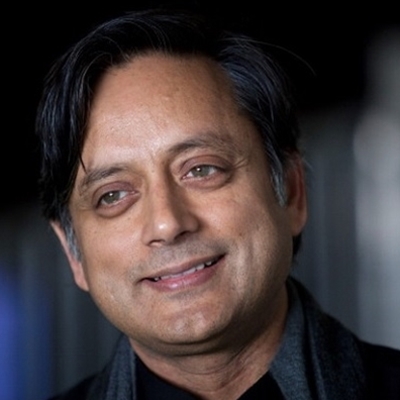
Event 37
Izzeldin Abuelaish talks to Tom Fletcher
I Shall Not Hate: A Gaza Doctor's Journey on the Road to Peace and Human Dignity
– Venue: Tolerance Majlis
The Palestinian Canadian doctor’s three daughters were killed by Israeli shells on 16 January 2009, during the Israeli Defence Forces' incursion into the Gaza Strip. His response to this tragedy made news and won him humanitarian awards around the world. Instead of seeking revenge or sinking into hatred, Izzeldin Abuelaish called for the people in the region to start talking to each other.
Tom Fletcher is Professor of International Relations at New York University and author of The Naked Diplomat. He is Principal-elect of Hertford College, Oxford.

Event 38
The poet, playwright, performer and designer is one of the most celebrated contemporary creators in the UK for the wide-ranging nature of his work. He is a Member of the Royal Society of Literature and an ambassador for the Ministry of Stories, an organisation that fosters the potential of 8- to 18-year-olds as writers. After publishing four poetry books and receiving the Fringe First Prize at the Edinburgh International Theatre Festival for his first play The 14th Tale, Ellams sold out his run at the National Theatre and on the world tour with Barber Shop Chronicles. His most recent play, The Half God of Rainfall, a work in verse that mixes Greek, Nigerian and basketball mythology, opened in March 2019 to great critical acclaim. In addition to his intense graphic and literary output, Ellams has founded The Midnight Run, an urban tour from dusk to dawn, and RAP parties that combine poetry slam with urban music. He talks to Peter Florence about how his work crosses disciplines and themes, such as identity, migration and coexistence.

Event 39
Galai plays a prominent role in the Tunisian Human Rights League, an organisation that belongs to the Tunisian National Dialogue Quartet, which was awarded the 2015 Nobel Peace Prize. This association fights for the recognition of rights, and to make Tunisia after the 2011 Jasmine Revolution a de facto, free and transparent democracy. He continues his advocacy from 2018, striving for better relations between the countries around the Mediterranean and a more humane policy of the UN regarding war refugees. Lydia Wilson is a scholar and broadcaster.

Event 40
Hallie Rubenhold, Bernardine Evaristo, Kapka Kassabova, Inua Ellams
The Writers’ Table 3
– Venue: The Theatre
From the intimate truths of fiction and poetry to the geopolitics of a volatile global reality, this is the third of a series of panel conversations in English and Arabic where writers respond to the audience's questions about the big issues of the day and reimagine the world.
Chaired by Miguel Syjuco, Filipino novelist and professor at New York University Abu Dhabi (NYUAD).
Event 41
Bachar Mar-Khalifé appears on stage with his father Marcel Khalifé, the renowned Lebanese composer, oudist and singer, in a musical tribute to his friend the great Palestinian poet Mahmoud Darwish. It was by singing Darwish's poetry at the beginning of his career that Marcel Khalifé reached international acclaim, far beyond the Arab world.
Marcel Khalifé is a virtuoso of the oud. He studied and taught at Beirut Higher Conservatory of Music. He performed on the world’s greatest stages and with the world’s great orchestras. In 2005, he was named UNESCO Artist for Peace. With the Al Mayadine ensemble, which he founded in Lebanon in 1976, he combined Arabic and Western instruments, performing instrumental compositions and sung poetry. Darwish’s poems remain the most famous works in Khalifé’s repertoire. Mixing Arab music traditions with jazz and electro, Bachar Mar-Khalifé invites his illustrious father and an instrumental ensemble to revisit this unique collaboration between poet and musician.
Marcel Khalifé – oud & vocal; Bachar Mar-Khalifé – conception, piano and vocal; Nenad Gajin – electric guitar; Anthony Millet – accordion; Sary Khalifé – cello; Aleksander Angelov – bass; Dogan Poyraz – percussion.
Event 42
From the intimate truths of fiction and poetry to the geopolitics of a volatile global reality, this is the fourth of a series of panel conversations in English and Arabic where writers respond to the audience's questions about the big issues of the day and reimagine the world.
Chaired by Editor in Chief of The National Mina Al Oraibi.
Event 43
The author is a giant figure in children’s literature, and a great entertainer. The Secret Diary of John Drawbridge is a clever blend of fact and fiction. Propelled by great characters, it is full of exciting historical facts, as young Drawbridge goes off to train to become a knight. Previously a winner of the Roald Dahl Funny Prize, Ardagh includes lots of jokes as he shows just how much there is to learn in training to be a knight. How to charge with a lance on horseback without falling off, for example. Or, why spiral staircases always go up in a clockwise direction and why the plates served at banquets are made of stale bread (and why you shouldn’t eat them). The author brings history to life and tells an entertaining story as he does so. Go behind the scenes with him and learn more about the history of the time.
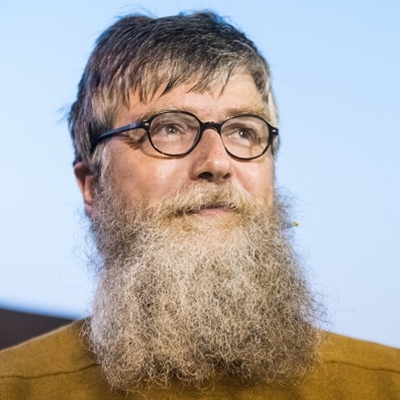
Event 44
The multi-award-winning Young Adult writer, author of the contemporary classic Finding Violet Park, spent a year travelling to Hay Festivals around the world and talking to teenagers about their lives. She shares the common threads and radical differences that came up in her conversations and explores ways in which teenagers might be better understood and empowered.

Event 45
How to get ahead in publishing: a guide for aspiring writers, publishers and book-lovers with the Chair and Director of Hay Festivals. Ahmed bin Rakkad Al Ameri is the Chairman of the Sharjah Book Authority whose jurisdiction covers most publishing activity in Sharjah including the Publishing Free Zone, public libraries, Sharjah International Book Fair and Sharjah Children’s Reading Festival. Caroline Michel is CEO of the international agency Peters Fraser & Dunlop and has worked in publishing for 30 years. Peter Florence founded the Hay Festival in 1987 and chaired the Booker Prize Jury in 2019.
